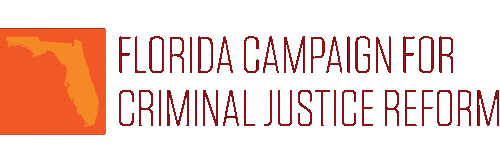TALLAHASSEE, FL -- On Tuesday, the Committee on Criminal Justice in the Florida Senate unanimously approved an amendment to Senate Bill 572 that would incentivize good behavior and rehabilitation in Florida’s prisons by allowing people convicted of non-violent offenses to serve 20 percent less of their prison sentence for good behavior.
The amendment, which was sponsored by Florida Senator Randolph Bracy, allows incarcerated people to utilize earned gain time through good behavior and participation in educational and rehabilitative programs to reduce their time in prison to 65 percent of their original sentence. Under the current outdated rehabilitation cap, prisoners must serve 85 percent of their sentence, regardless of any rehabilitation efforts. Florida spends $2.7 billion to incarcerate roughly 100,000 people each year.
The following is a statement from Shalini Goel Agarwal, senior staff attorney for criminal justice reform for the SPLC Action Fund:
“If we want people in prison to make a good faith effort to improve themselves, we need to give them an incentive to do so. An artificial cap of 85 percent discourages rehabilitation. Most people who are locked up eventually return to their communities; we need to incentivize good behavior to prepare people for life outside of prison. This bill is not perfect—there’s no reason why this should only apply to people incarcerated for non-violent crimes—but it’s a step in the right direction.”
The following is a statement from Kara Gross, ACLU of Florida Legislative Director and Senior Policy Counsel:
“Our criminal justice system has prioritized punishment over rehabilitation for too long. That has meant fewer people gaining the skills necessary for success once they return home. The longer an individual is incarcerated, the harder it is to successfully reintegrate into society. If we encourage incarcerated people to pursue rehabilitation in prison, it will increase public safety, reduce recidivism, reunite families, and save taxpayer dollars that can be reinvested in mental health and drug treatment programs.”
The following is a statement from Denise Rock, executive director of Florida Cares Charity Corp., dedicated to improving the lives of the incarcerated:
“Today the voices of the citizens of Florida have been heard. This amendment will incentivize and reward rehabilitation in prisons, reduce recidivism, and increase public safety through reforming the cap on good behavior time off to 65% for all non-violent offenders as research studies have supported for at least the last five years. This is a solid step forward in Florida toward meaningful criminal justice reform in 2020 and a significant tax savings for tax payers in Florida.”
The following is a statement from Neil Volz, Deputy Director, Florida Rights Restoration Coalition:
Allowing people to earn more time off for good behavior will improve public safety by reducing the risk of recidivism. Incentivizing good behavior will also help improve the lives of our fellow citizens as they reenter society, creating stronger communities in the process. It is a true win-win."
For a full list of organizations involved in the Florida Campaign for Criminal Justice Reform, go to https://www.betterjusticefl.com/.
Stay Informed
Sign up to be the first to hear about how to take action.
By completing this form, I agree to receive occasional emails per the terms of the ACLU’s privacy statement.
By completing this form, I agree to receive occasional emails per the terms of the ACLU’s privacy statement.

